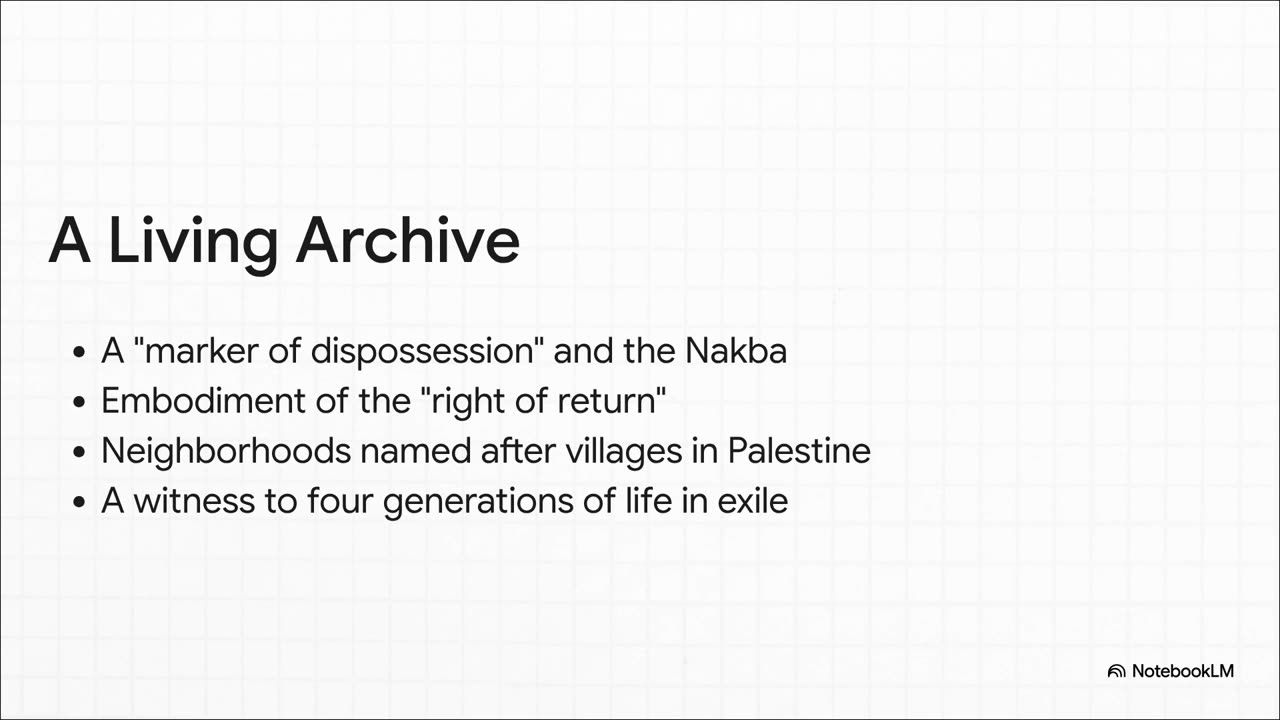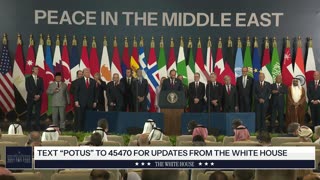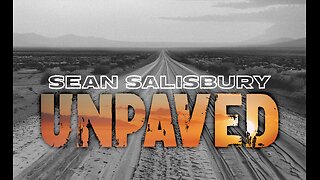Premium Only Content

Urbicide The Killing of a City
The provided text is an excerpt from a 2024 academic article by Azadeh Sobout titled "Urbicide and Coming to Terms with the Past: Everyday Acts of Return and Reconstruction in Post-war Nahr el Bared," published in The International Journal of Transitional Justice. The article critically examines the concept of urbicide, defined as the deliberate destruction of the urban environment and its socio-political fabric, using the 2007 siege and destruction of the Palestinian refugee camp Nahr el Bared in Lebanon as a central case study. Sobout explores how the Palestinian community has utilized grassroots transitional justice mechanisms, such as collective map-making and truth-telling initiatives, to demand accountability, memorialize their collective memory, and assert their political agency during the reconstruction process. The research, which employed oral history interviews and ethnographic fieldwork, argues that post-war reconstruction must be fundamentally viewed as a matter of justice to address human rights violations, displacement, and the attempted erasure of Palestinian identity. Ultimately, the article advocates for a localized approach to transitional justice that foregrounds the voices and efforts of marginalized communities, connecting the urbicide in Nahr el Bared to the broader context of continued Palestinian dispossession and displacement.
"The violent destruction of Nahr el Bared refugee camp – the second biggest Palestinian camp in Lebanon – in 2007 and its community’s efforts to reclaim justice through post-war reconstruction make it a compelling case to study the intersection of urbicide and transitional justice. Utilizing the concept of grassroots transitional justice and building on recent scholarship on urban warfare and urbicidal violence, this article examines how Palestinians of Nahr el Bared have developed creative infrastructures of justice in extreme conditions of urbicide. By shedding light on urbicide as a form of political violence
and its role in producing violations of human rights – particularly those related to socio-economic rights, displacement and destruction of space, memory and identity – the article suggests that post-war reconstruction can and should be viewed as a matter of justice. Linking the concepts of urbicide, transitional justice and post-war reconstruction, the article explores a model of transitional justice that engages with restoration of truth, memorialization and governance in the post-war reconstruction process. By high-
lighting narratives, stories and memories that focus on the destruction, the siege, the suspended home and the need for return, memorialization and reconstruction, the article explores the grassroots conception of justice for the displaced Palestinian community and examines how transitional justice might be reconfigured in the aftermath of urbicide."
#Urbicide and Coming to Terms with the
Past: Everyday Acts of Return and
Reconstruction in Post-war Nahr el Bared
Azadeh Sobou
The International Journal of #TransitionalJustice, Vol. 19, 2025, 279–295
doi: https://doi.org/10.1093/ijtj/ijae035
#openaccess
Grassroots transitional justice, Nahr el Bared, Palestinian camps, post-war reconstruc-
tion, urbicide
-
 LIVE
LIVE
Dr Disrespect
4 hours ago🔴LIVE - DR DISRESPECT - BATTLEFIELD 6 - JET CRASHES, EXPLOSIONS, 360 NO-SCOPES
1,804 watching -
 LIVE
LIVE
StoneMountain64
53 minutes agoBattlefield 6 Flick Keybind is WILD
48 watching -
 LIVE
LIVE
Side Scrollers Podcast
3 hours agoTony Blair SHILLS For Digital ID + UK BLOCKS 4Chan + Hasan DogGate ESCALATES + More | Side Scrollers
1,068 watching -
 1:01:37
1:01:37
DeVory Darkins
2 hours agoHostages released as Trump delivers historic speech... Portland descends into bizarre protest
37.1K39 -
 1:06:45
1:06:45
Timcast
2 hours agoTrump WINS, Will Federalize IL Guard, Billionaire Warns CIVIL WAR Has Begun
116K132 -
 1:58:38
1:58:38
The Charlie Kirk Show
2 hours agoPeace! + SLC Armed Queers | Kassam, Wheeler | 10.13.2025
32K24 -
 54:22
54:22
The White House
3 hours agoPresident Trump Delivers Remarks to World Leaders
7.22K24 -
 LIVE
LIVE
Viss
2 hours ago🔴LIVE - Battlefield 6 Battle Royale When!?! - BF6 w/ Viss
115 watching -
 2:01:33
2:01:33
Steven Crowder
5 hours agoTrump Ends Israel-Gaza War But Not Everyone is Happy About It
268K201 -

Sean Unpaved
2 hours agoFranklin Fired, Arrowhead Chaos, & MNF's Doubleheader Breakdown: Gridiron Shockwaves
3.65K